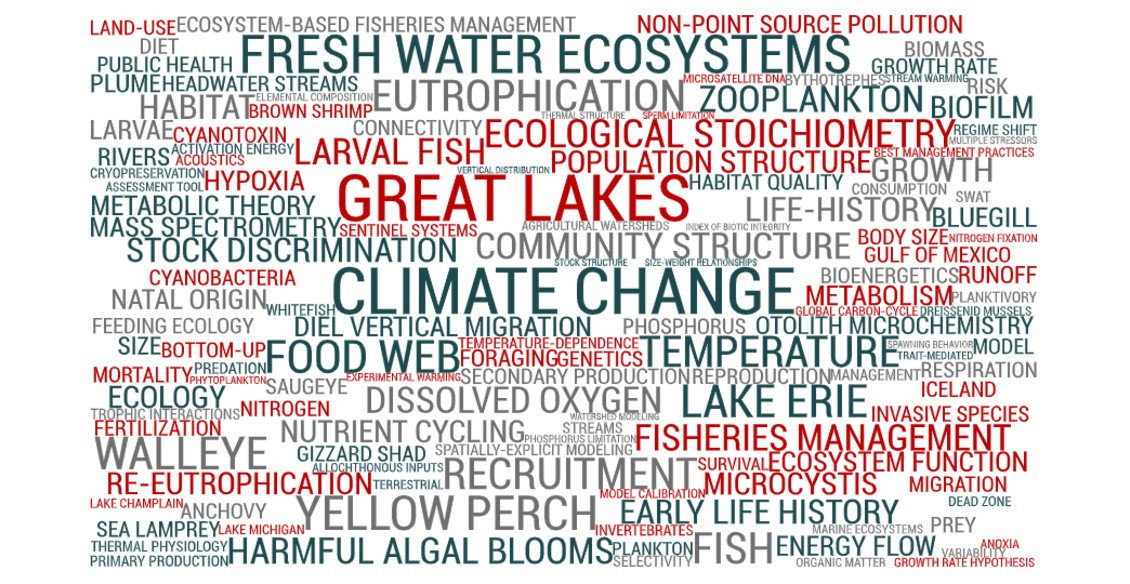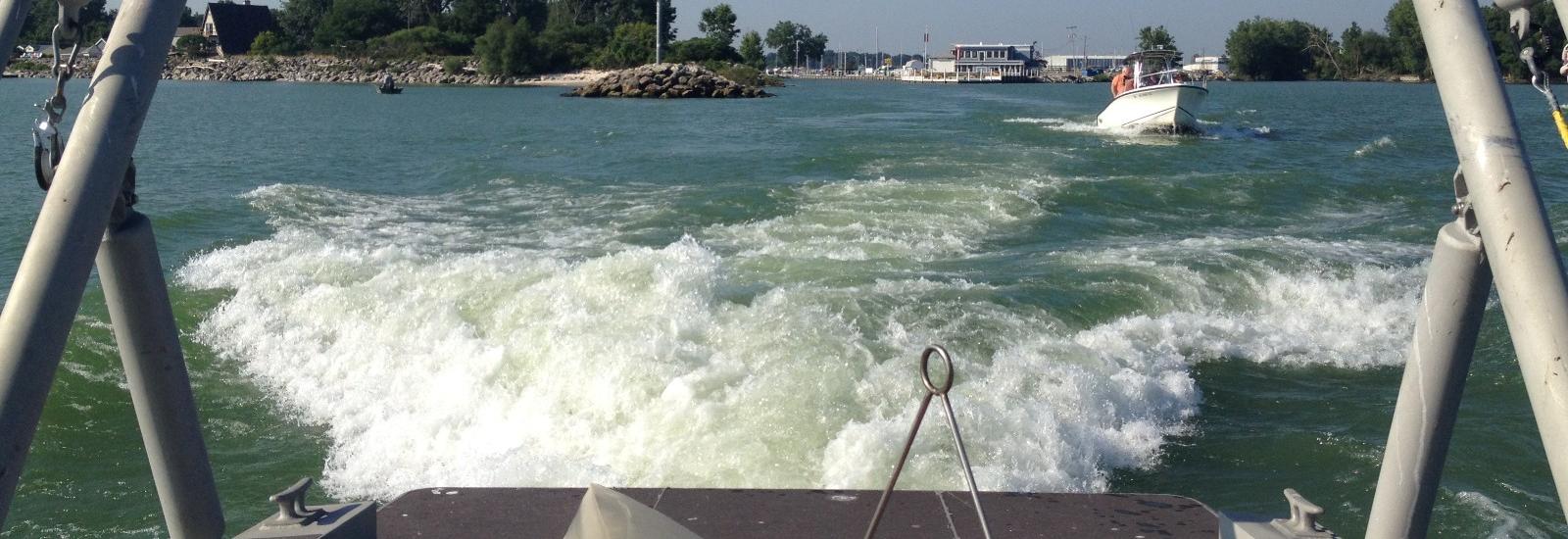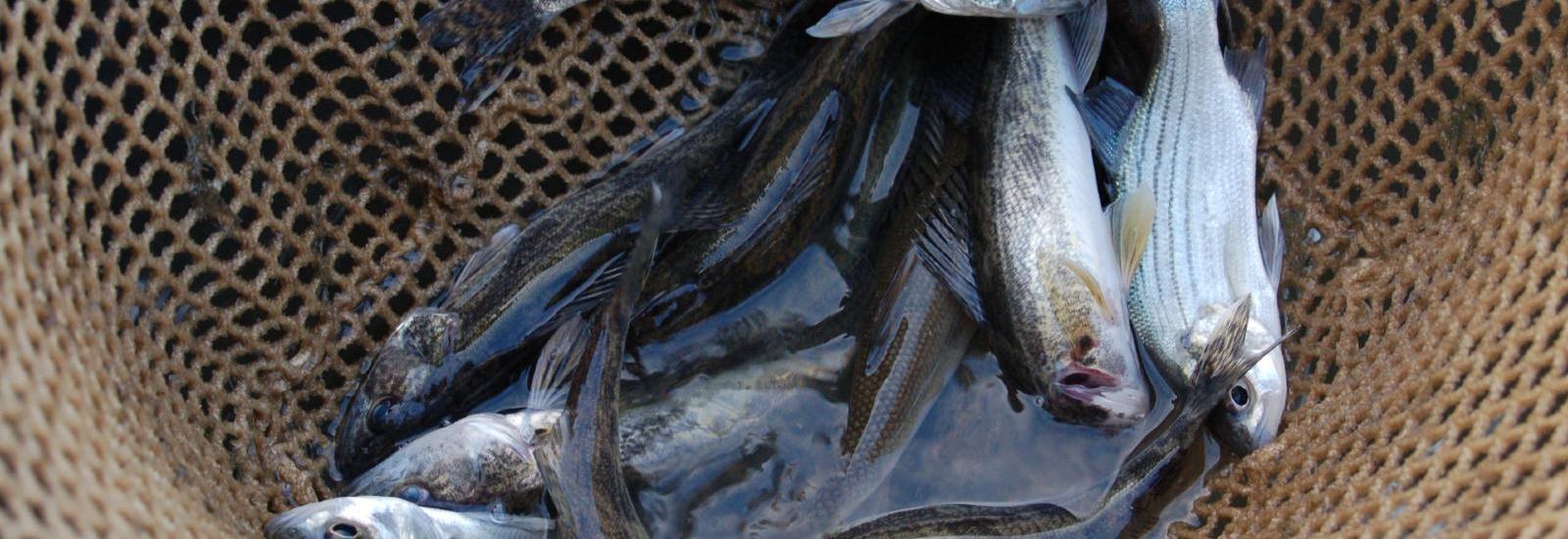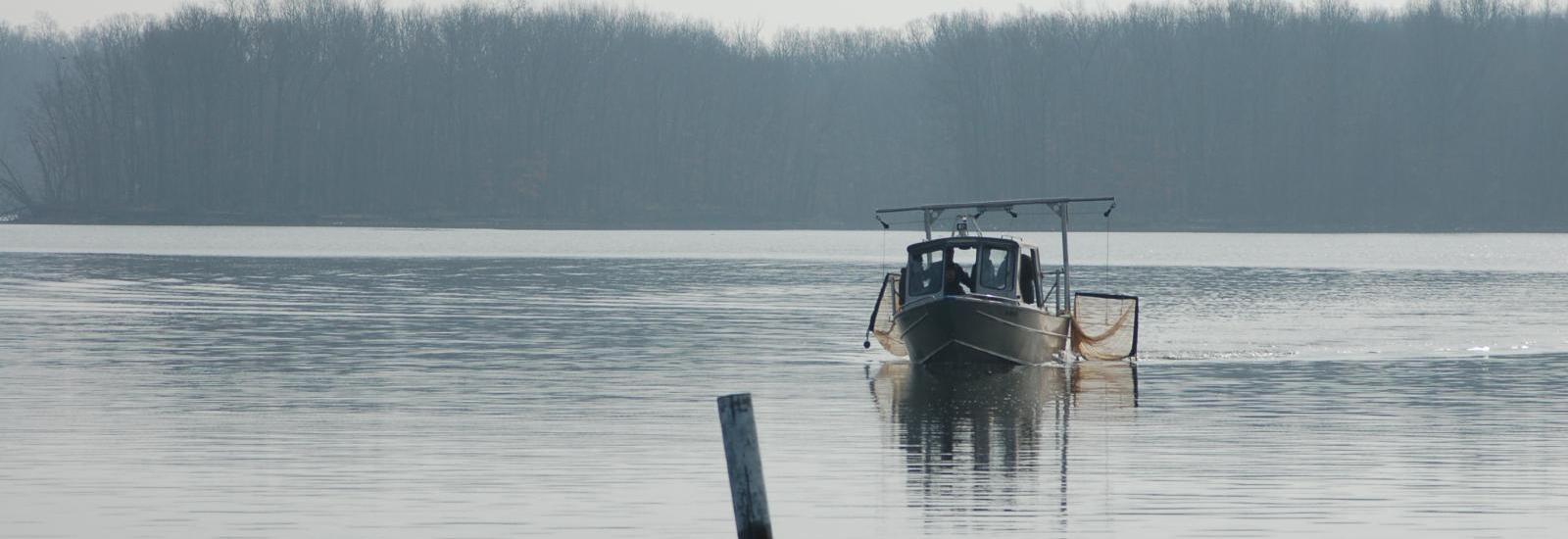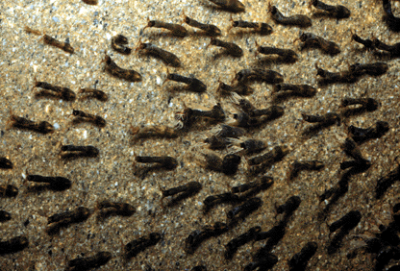At the AEL we work across a broad range of topics in aquatic ecology. See below for a description of our research focus areas, and feel free to contact us - we're happy to talk about our work.
Research Focus Areas
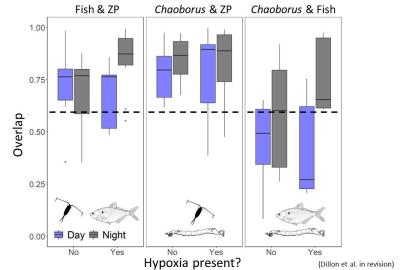
Success of a population can heavily depend on interactions with other components of the food web and broader community, including both predator-prey and competitive interactions. In turn, factors that cause one member of the food web or community change in its behavior or abundance may indirectly affect other members of the food web/community. Many of the researchers at the AEL are interested in understanding the role of food-web and broader community interactions in driving fish population dynamics (and recruitment), using field observational, experimental, and modeling approaches to do so.
Check out AEL projects with food web and fish community dynamics as a research focus.
See all AEL members with a research interest in food web and fish community dynamics.
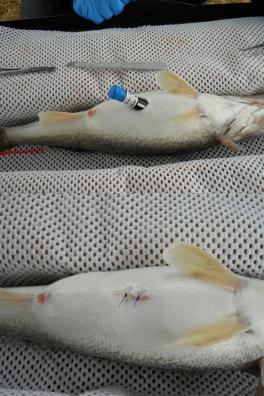
Many fish populations in large aquatic ecosystems are structured, with individual breeding subpopulations (stocks) demonstrating unique behavioral adaptations (e.g., spawning location) and possibly a unique genetic makeup. At the AEL, we have been seeking to use such differences among stocks as a means to determine which stocks are supporting the broader adult (or fishable) population, to identify connectivity among populations (both within and between lakes), to understand life-history phenomena (e.g., philopatry, spawning frequency). Toward these ends, we have been seeking to develop “natural tagging” techniques that can reliably discriminate among stocks, focusing in particular on the use of genetics (microsatellites, single nucleotide polymorphisms) and the microchemical composition of fish otoliths (ear stones).
Check out AEL projects with population dynamics and life history as a research focus.
See all AEL members with a research interest in population dynamics and life history.
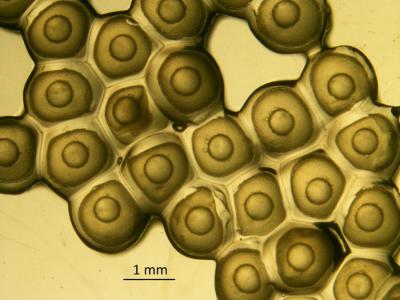
Understanding recruitment is essential to the effective management of culturally, economically, and ecologically important species, especially in light of human-caused rapid environmental change (e.g., habitat modification, climate change, species invasions). With knowledge of the mechanisms that influence recruitment (i.e., the number of individuals that survive to the first life stage at which natural mortality stabilizes near adult levels), agencies will be in a better position to forecast future fluctuations in population size, identify management plans that can protect or rehabilitate stocks, and set user- group (e.g., recreational anglers, commercial fishers) expectations at a level commensurate with ability of the ecosystem to support the desired species.
At the AEL, our main focus regarding recruitment is to determine when and how recruitment is set, and in turn, use this knowledge to recommend appropriate management or conservation strategies.
Check out AEL projects with recruitment as a research focus.
See AEL members with an interest in recruitment mechanisms of fish.

Aquatic ecosystems are undergoing rapid change, particularly due to human activities both on land in the water. Anthropogenic perturbations, such as habitat modification, climate change, overharvesting, invasive species, pollution, and eutrophication, are changing the biotic and abiotic components of our aquatic ecosystems, which threaten precious ecosystem services, as well as biodiversity.
At the AEL, we try to understand and predict how anthropogenic stressors might impact aquatic ecosystems, including their vital ecosystem services (e.g., fisheries production; clean, safe water for recreation and drinking). Oftentimes we employ integrative, multidisciplinary approaches in our research, including the combined use of field investigations, natural and controlled experiments, and modeling. Such approaches are necessary as most ecosystems are simultaneously affected my multiple human-driver stressors, which can independently, interactively, or synergistically alter ecosystem structure and function.
Check out AEL projects with global change as a research focus.
See AEL members with a research interest in global change ecology.
